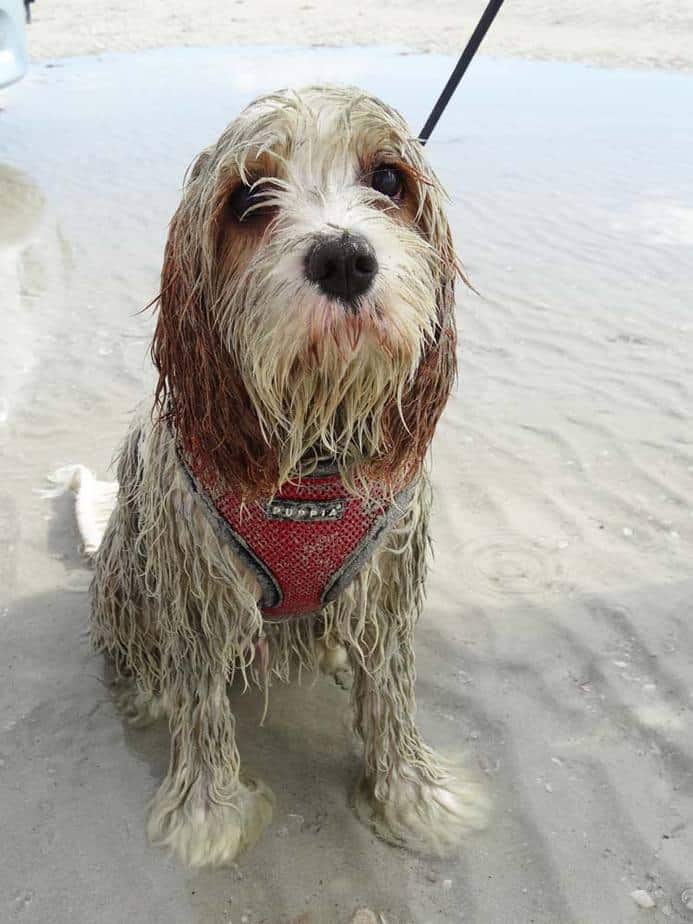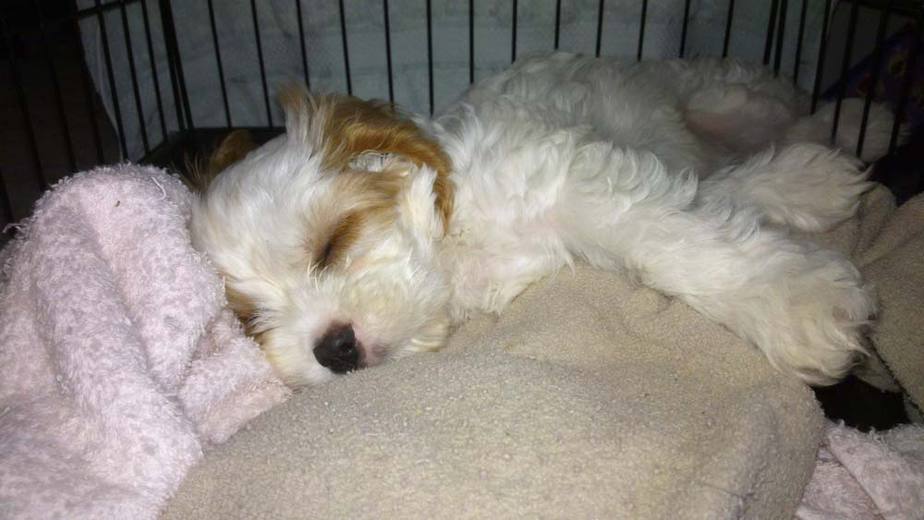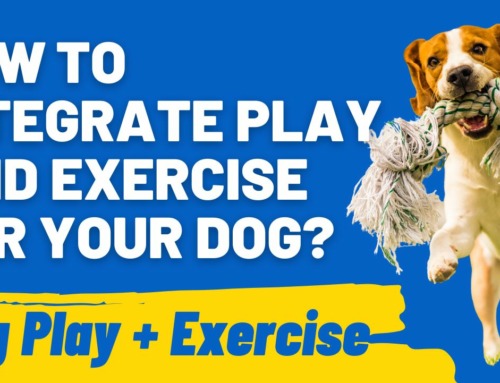Getting a puppy sounds like a great idea, but in reality, it’s actually a life changing event. They’re a long-term commitment that take time and energy, and sometimes, people regret getting a puppy at all. But should you get rid of them?
When we got our puppy we read about breeds, learned about training, and found a beautiful Cavoodle we fell in love with. We bought toys, and a bed, and leash, and food. All the stuff!
Our kids were little, and we thought having a puppy would be a great addition to our family. I personally thought it wasn’t a big deal. I was wrong.
Although everyone else in the family took to him like a duck to water, I found him to be hard work. I started thinking about going on short family holidays, and how much harder that was now having to find someone to mind him.
I was getting up through the night and taking him outside for toileting. He was whining, and sometimes barked.
We found it hard to go anywhere because we were worried about giving him separation anxiety.
I had dogs my whole life, but truth bomb, I didn’t do the heavy lifting! Mom was the one who would do all the stuff that isn’t so much fun. Don’t get me wrong, I cleaned up some poop and would feed the dogs and take them for walks.
But I never got up in the night. I never took them to the vet and had to pay any money. I never had to deal with whining and crying, or where to leave them when going away, or house-training, or training at all to be honest.
So now we had this new puppy in the house. To make matter worse, he would growl and sometimes get aggressive. I thought we’d got a bad dog that had something wrong with him. And we had young kids, so I was worried about them.
All in all, I regretted getting a puppy.
Bobby is now 7-years old and is a beloved member of our family. He’s always there to welcome me home. If I’m down he somehow knows and comes and cuddles.
I love his little snore, and the way he spreads out on the living room floor and sleeps. I love how excited he gets when we go for walks or car rides.
I 100% don’t regret getting him anymore. I love him.
So, if you regret getting your puppy, then know this, you’re not alone, and also, it won’t last.
But let’s go through some things that are going to help you get through this feeling of regret.

(Bobby at the beach – got a little excited with the water!)
Why Do You Regret Getting a Puppy?
There can be a lot of reasons to regret getting a puppy. Do you feel like any of these relate to you?
- Overwhelmed by them
- Don’t know where to start with them
- They’re misbehaving
- They’re hyper and won’t ever calm down
- They’re waking you up in the night
- You don’t want the responsibility
- You think you got a bad dog
- They’re pooping and weeing in the house
- They’re barking
- They’re whining
All these reasons are legitimate reasons for feeling regretful of getting a puppy. Puppies are definitely hard work! But the truth is most of the above concerns are temporary.
Let’s go into more detail on these so you can work through which ones are bothering you the most and the best way to overcome them.
Also be sure to read our article Exhausting Puppy: Are You Overwhelmed or Depressed?
If your puppy is your second dog, you might also like to read Was Getting a Second Dog a Mistake?
Overwhelmed by Your Puppy
If you feel just overwhelmed by your puppy, it’s a good idea to break down what it is that’s bothering you the most. Sometimes we just get to point where we feel there’s just too much to deal with.
For one, you might be more tired than usual as a puppy can keep you up at night. And when we’re tired it’s harder to deal with the stress in our lives, and a puppy can initially bring more stress into your life – no doubt about that.
But remember this important point: a puppy isn’t a puppy forever. Puppies do calm down in time. As they grow, you will bond more and more. And after you’ve addressed some individual concerns, you will be more equipped to deal with them, and more at ease.

(Always playing with the kids!)
Don’t Know Where to Start
Take stock of what your puppy is doing. Write a list out of their behaviors that are most troublesome to you. Also write a list of all the reasons why you regret getting your puppy.
Once you have your list, you will be better equipped to deal with the issues, one at a time.
Your Puppy is Misbehaving
It’s a terrible feeling when you get your puppy home and you have zero control over them. They won’t listen, they destroy everything in their path, they wee and poop everywhere.
All these things happen because right now they’re a blank slate. They are an animal living in your house, and they will act like an animal. Luckily, they also learn extremely quickly!
With some training they will learn to behave and become more civil. Here are five things you should do starting now to help your puppy understand their boundaries:
-
Teach the “Sit” command, but not how you think.
When we taught our puppy to sit, we did it because it was just the thing to do. “Sit” before feeding him, “Sit” before getting a treat, “Sit” before doing more tricks.
But the command is more than that. It’s about getting control over your puppy’s behavior.
When your puppy is jumping all over you, you want to be able to say, “Settle. Sit.” and they do it.
-
Establish Boundaries
The best way to teach your puppy their boundaries is through positive praise and treats. That sounds counter-intuitive, I know. You might think you need to tell them off when they go over their boundaries, but this actually will do the opposite of what you want.
Something that doesn’t get them a treat or praise is something they’ll eventually be less likely to do, unless of course you’re talking to them as they do that thing you don’t like. This will only make them think what they’re doing gets a reaction, so I’ll keep doing it!
Be sure to have a little pile of treats around the house. Have some on the table, in the kitchen, on a mantle, on a desk, on a bookcase. This is critical to being able to quickly praise your puppy with a treat when they do something you like.
TIP: Be sure to change up the treats. The more eager they are to get approval, the quicker they will learn.
If your puppy goes to their bed, give them a couple of treats. If your puppy settles themselves, give them treats. Regularly ask your puppy to sit and treat them when they do.
Even treat them when saying their name.
-
Address Needs
Your puppy will be very dependent upon you in their first 6-months. This is going to be a big part of why some people are regretful of getting their pup.
But rather than chasing your puppy around and cleaning up their messes, try and get in front of their pattern.
If you take your puppy outside for toileting regularly, they’ll quickly learn house-training, and you will spend less time cleaning up after them.
If you spend time playing with your puppy, training them, and interacting with them and their toys, you’ll find they’ll spend most of their time sleeping, and less time being bothersome.
It also doesn’t need to be for long periods of time. A puppy doesn’t need much exercise. They will sleep for 18-20 hours in a day.
For 4 to 6 hours they will be full of puppy energy, and so if you can find ways to use up that energy in a positive way, it’s going to be a big help to you.
There are a lot of toy options on the market, and the more toys you have, the more you’re going to be able to find one that your puppy just finds irresistible!
This can take some of the pressure off of you to do all the play.
-
Crate Train Them
Does your puppy sleep through the night? Or do they whine and cry and carry on? A crate is a pivotal tool in helping your puppy with their behavior, whether it’s in the day or at night.
We crate trained Bobby and it really made the world of difference and took away a lot of the regret I had as it was so much easier to care for him. And it also made house-training a breeze!
Crate training your puppy is going to be so helpful in managing their behavior, and ultimately will make it easier on you.
- Have Patience
This is a big one. We have friends who bought a Jack Russel Terrier puppy, and soon after found him to be a real handful. And some breeds will be harder to care for than others.
But no matter what breed, they’re always going to be harder in the puppy stage. As they age, not only will they calm down, but you will grow fonder of them.
You might be thinking I just don’t want this puppy, but from a personal standpoint, I’d advise you to stick with it for at least a little while. You’ve made a commitment and it’s worth pursuing through the hardest part of dog ownership.
And once out the other side, you will be rewarded with a dog who you will cherish for years to come.
Your Puppy Won’t Calm Down
Puppies can be a handful, especially if they’re hyper all the time and no matter what you do, they won’t seem to calm down.
Luckily there are some training techniques and easy solutions to assist you in helping your puppy calm down.
For all of those solutions, be sure to read our post: Calm Down a Crazy Puppy: A Complete Guide

(Forced to endure dress-ups with the kids – I don’t think he likes it!)
You Don’t Want the Responsibility
Look, I’m not going to write this and say I don’t make mistakes. Because we all make mistakes and getting a puppy can sometimes be one of these times.
But what I will say is it might not be a mistake. Sure, they’re more work than you’d planned. They’re more demanding, and keep you up, and all the bad stuff.
But things can still turn around. A puppy gradually gets easier and easier. By the time they’re 18-months old you’ll be so used to them they’ll be a part of the family.
The thing is, you still need to put in the time and effort to make them a good dog. It won’t happen on its own. And this is especially true at the beginning.
Socializing them is an absolute must as the more time they spend with other dogs and people, the less they’ll go crazy every time they see a dog or person. They’ll also learn how to behave around others.
They should go to puppy school, as not only is it vital for their social skills, they can start to learn some important behaviors.
We Got a Bad Dog
I thought Bobby was a bad dog. He would growl at me, and even bite at my hands – not softly either!
But if he bit I’d yelp and pull my hand away and play time was over. He soon learned that this wasn’t behavior that was going to be rewarded.
He also had terrible manners when people came over and jumped all over them, and bark at them.
I’d stand between him and the person until he settled down and then I’d praised him. I’d tell all visitors to ignore him until he’s settled down.
Bobby would also pull on his leash like crazy when we went for walks. So I would do a 180 turn and start walking. Whenever he stayed close by I’d give him treats. As soon as he pulled, I’d do another 180 turn.
The reason I’m saying this stuff is that Bobby wasn’t a well-behaved dog. We had to teach him how to appropriately behave.

(He’s given us a lot of laughs over the years)
Finding a New Home for Your Puppy
If the regret can’t be resolved, and you realize that the puppy just isn’t going to work for you, then it might be time to find them a new home.
And there are definitely times that a puppy isn’t going to work, especially if you feel that a baby in the house might be harmed, or if your circumstances have changed making a puppy untenable.
I would personally try to re-home them in this order:
Call Their Breeder
To re-home a puppy, you should first get in touch with the breeder of your dog. Let them know it’s just not working out and see if they know anyone who has been inquiring about a dog.
Other Breeders
If there’s no luck there, reach out to other breeders of your dog breed and ask them if they know anyone who is interested. A breeder might actually take them on themselves.
Family and Friends
Put a call out to family and friends and see if anyone is interested, but just make sure your puppy isn’t going to be passed from one owner to the next. Let them know what they’re in for.
Internet
Advertise online for someone to adopt them.
Final Word
Firstly, I’m sorry that you feel this way about your new puppy. It’s not a nice feeling, I know!
My advice to you is to stick it out a little longer, and keep in mind that they will get easier and easier as time goes on. By the time they’re 18 months to 2-years old you won’t even think about having a dog – they’ll just be there. And you’ll be grateful for them I’m sure, just as I am.
If you are still struggling with your puppy’s behavior, consider reaching out to a trainer near you for help in person. You can use these sites to find a Certified Professional Dog Trainer (www.ccpdt.org) or a Karen Pryor Certified Training Partner (https://karenpryoracademy.com/find-a-trainer/#!directory/map).
And finally, if your puppy just isn’t working out for you, then it’s not the end of the world. Find a suitable owner who had the time to put into them.
Thanks for reading!
Geoff
Are you interested in reading this: Puppy Rage: Losing Your Temper with Your Puppy
Or maybe this: Calm Down Your Crazy Puppy: A Complete Guide

(Me and Bobby)




